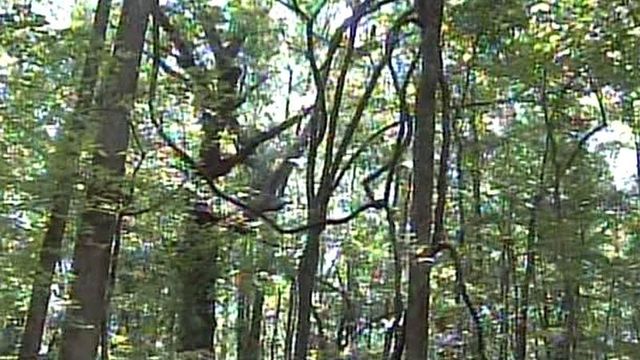Groups work to protect area water supplies
The Upper Neuse Clean Water Initiative has spent $19 million to preserve 17,000 acres and 17 miles of streams that feed Falls Lake and other area reservoirs.
Posted — UpdatedThe announcement came as representatives of the nonprofit group met with officials from Wake, Durham and Orange counties to discuss progress in the Upper Neuse Clean Water Initiative. The partnership between area governments and environmental groups is designed to protect water supplies in the Upper Neuse River basin by preserving areas from development.
The conservancy acquired 92 acres of the former Stagville Plantation near Bahama from Arlen Park LLC for an undisclosed sum. A stream that cuts across almost three-quarters of a mile of the property flows into Falls Lake, which serves as the primary reservoir for Raleigh and six Wake County towns.
The land is adjacent to the conservancy's Horton Grove Nature Preserve and the Stagville Historic Site.
"This is a doubly valuable project, not only from (the standpoint of) historic preservation but also from water quality," said Kevin Brice, executive director of the conservancy. "If we can keep (tributaries) clean, we'll keep the reservoirs clean."
Raleigh has invested more than $2 million so far to protect land in the lake's watershed, Mayor Charles Meeker said, and another $1.5 million was included in the fiscal 2009 budget that the City Council approved Monday. A "nutrient-reduction fee" paid by new development finances the program, he said.
"We have to work together as a region because the water comes from all over the Triangle, not just from Wake County," Meeker said. "That's the reason Raleigh is taking steps, not just in Wake County but also in Durham and Orange counties."
Since its inception three years ago, the Upper Neuse Clean Water Initiative has spent $19 million to preserve 17,000 acres and 17 miles of streams that feed area reservoirs. The partnership is negotiating the purchase of another 26 tracts totaling 3,900 acres and 39 miles of streams for about $27 million.
Curtis Richardson, a professor of resource ecology at Duke University and director of Duke's Wetlands Center, said the land-preservation strategy is smart. Water can be cleaner and the natural areas that are retained can help prevent droughts because rainwater sinks into the ground rather than running off hard surfaces from development, he said.
"This is a start, and this is a very good start," Richardson said.
• Credits
Copyright 2024 by Capitol Broadcasting Company. All rights reserved. This material may not be published, broadcast, rewritten or redistributed.





